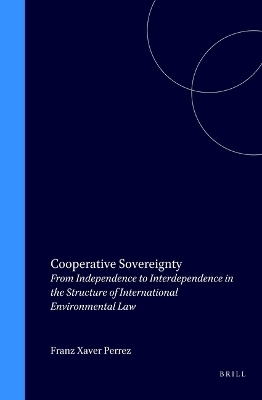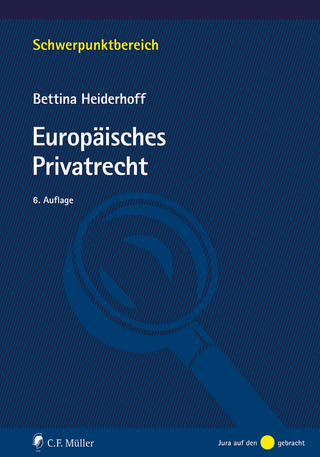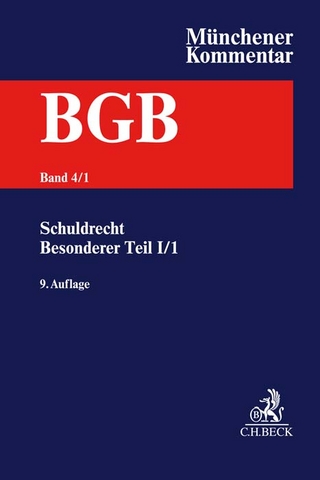
Cooperative Sovereignty
From Independence to Interdependence in the Structure of International Environmental Law
Seiten
2000
Kluwer Law International (Verlag)
978-90-411-1426-6 (ISBN)
Kluwer Law International (Verlag)
978-90-411-1426-6 (ISBN)
This work develops a theory which holds that co-operation between States is not an independent principle supplementing State sovereignty or even a counterweight to State sovereignty. Rather, co-operation should be conceived an element of the very notion of sovereignty itself.
In the late 20th century, it has become widely accepted that States need to cooperate in order to pursue effectively their interests within the increasingly interdependent world order. At the same time, the principle of sovereignty is still often invoked as a claim for independence and a justification for non-cooperation. This book goes beyond that traditional understanding to develop a new theory which holds that cooperation between States is not an independent principle supplementing State sovereignty or even a counterweight to State sovereignty. Rather, cooperation should be conceived an element of the very notion of sovereignty itself. Sovereignty is not a negative principle meaning merely State independence and freedom, but it also inherently includes a positive element which stresses a State's innate membership in the international community and its authority, its responsibility, its duty to participate actively in that community. In short, sovereignty not only means independence, it also means a responsibility to cooperate.
The first part of the book traces the history of the principle of sovereignty from the theories of Grotius and Francisco de Vitoria to the modern understanding of the principle in the light of the United Nations system. The second part of the book poses challenges to the traditional concept of sovereignty in the light of the 20th century interdependence, and the third part goes on to formulate a new theory which takes into account the principles of customary law and treaty law. The conclusions drawn on by the author are refreshing, but may also be controversial, and this book will most definitely contribute to the discussion and development of the principle of sovereignty in international law.
In the late 20th century, it has become widely accepted that States need to cooperate in order to pursue effectively their interests within the increasingly interdependent world order. At the same time, the principle of sovereignty is still often invoked as a claim for independence and a justification for non-cooperation. This book goes beyond that traditional understanding to develop a new theory which holds that cooperation between States is not an independent principle supplementing State sovereignty or even a counterweight to State sovereignty. Rather, cooperation should be conceived an element of the very notion of sovereignty itself. Sovereignty is not a negative principle meaning merely State independence and freedom, but it also inherently includes a positive element which stresses a State's innate membership in the international community and its authority, its responsibility, its duty to participate actively in that community. In short, sovereignty not only means independence, it also means a responsibility to cooperate.
The first part of the book traces the history of the principle of sovereignty from the theories of Grotius and Francisco de Vitoria to the modern understanding of the principle in the light of the United Nations system. The second part of the book poses challenges to the traditional concept of sovereignty in the light of the 20th century interdependence, and the third part goes on to formulate a new theory which takes into account the principles of customary law and treaty law. The conclusions drawn on by the author are refreshing, but may also be controversial, and this book will most definitely contribute to the discussion and development of the principle of sovereignty in international law.
Preface.
Summary of Contents.
Table of Contents.
Abbreviations.
Introduction.
Part I: Traditional Approach: Sovereignty and Permanent Sovereignty as Independence.
1. Sovereignty as Independence.
2. Permanent Sovereignty Over Natural Resources as Independence.
Part II: Challenges of the Traditional Approach.
3. The New Reality and the Premises of Sovereignty.
4. The New Reality and the Key Elements of Sovereignty.
Part III: The Modern Approach: Sovereignty as Responsibility to Cooperate.
5. A Functional Analysis of Sovereignty.
6. Sovereignty and Permanent Sovereignty as Responsibility to Cooperate. Bibliography.
Index.
| Erscheint lt. Verlag | 1.9.2000 |
|---|---|
| Verlagsort | Zuidpoolsingel |
| Sprache | englisch |
| Maße | 155 x 235 mm |
| Gewicht | 789 g |
| Einbandart | gebunden |
| Themenwelt | Recht / Steuern ► EU / Internationales Recht |
| Recht / Steuern ► Privatrecht / Bürgerliches Recht ► Internationales Privatrecht | |
| ISBN-10 | 90-411-1426-2 / 9041114262 |
| ISBN-13 | 978-90-411-1426-6 / 9789041114266 |
| Zustand | Neuware |
| Haben Sie eine Frage zum Produkt? |
Mehr entdecken
aus dem Bereich
aus dem Bereich
1. Halbband: §§ 433-480, CISG
Buch | Hardcover (2024)
C.H.Beck (Verlag)
119,00 €


